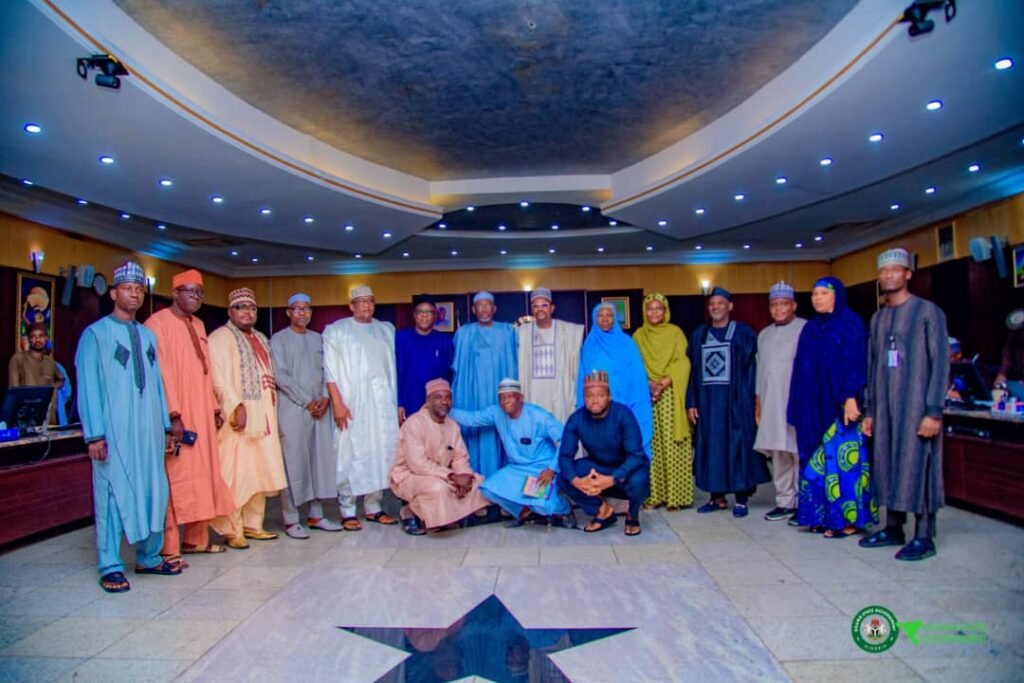Muhammad Alabira Nabordo
Jigawa State Governor, Malam Umar Namadi, has inaugurated a technical committee to study and implement the new Federal Tax Reform Policy at the state level.
The committee, chaired by Professor Hannatu Sabo Mohammed, Commissioner of Finance, is tasked with studying the new federal tax framework, identifying areas for domestication, and developing a practical implementation strategy and roadmap.
According to the release made available by the Chief Press Secretary, Mohammed Hamisu Gumel said the inauguration ceremony was held at the Council Chambers in Government House, Dutse, presided over by Governor Umar Namadi.

The Governor emphasized that the timely administration of these reforms is critical to strengthening fiscal capacity, enhancing service delivery, and promoting inclusive growth.
He said the committee is expected to submit an initial report within two weeks, a direct implementation roadmap within six weeks, and a final report of recommendations within two months.
Governor Namadi urged the committee members to approach their assignment with professionalism, commitment, and integrity.
Stressing the importance of collaboration with development partners, particularly the Fiscal Accountability and Capacity Enhancement (FACE) Programme.
Governor Namadi therefore emphasized that the initiative is part of efforts to strengthen the state’s fiscal capacity and enhance service delivery, aligning with the Federal Government’s ongoing fiscal reforms aimed at broadening the revenue base, improving efficiency, and ensuring fairness in Nigeria’s tax system.
To this end, the FACE Programme, under the leadership of Ms. Adeniyi, will support technical and stakeholder engagement processes.
The chairperson of the Committee Professor Hannatu Sabo Mohammed, expressed gratitude to the Governor for the appointment and assured that the committee would deliver on its mandate with diligence and integrity.
She described the Governor’s initiative as visionary, noting that it places Jigawa State in a leading position as a model for implementing national fiscal reforms.
The committee’s work is expected to enhance public awareness and compliance with the new tax law, engaging key stakeholders, including the business community and civil society.


